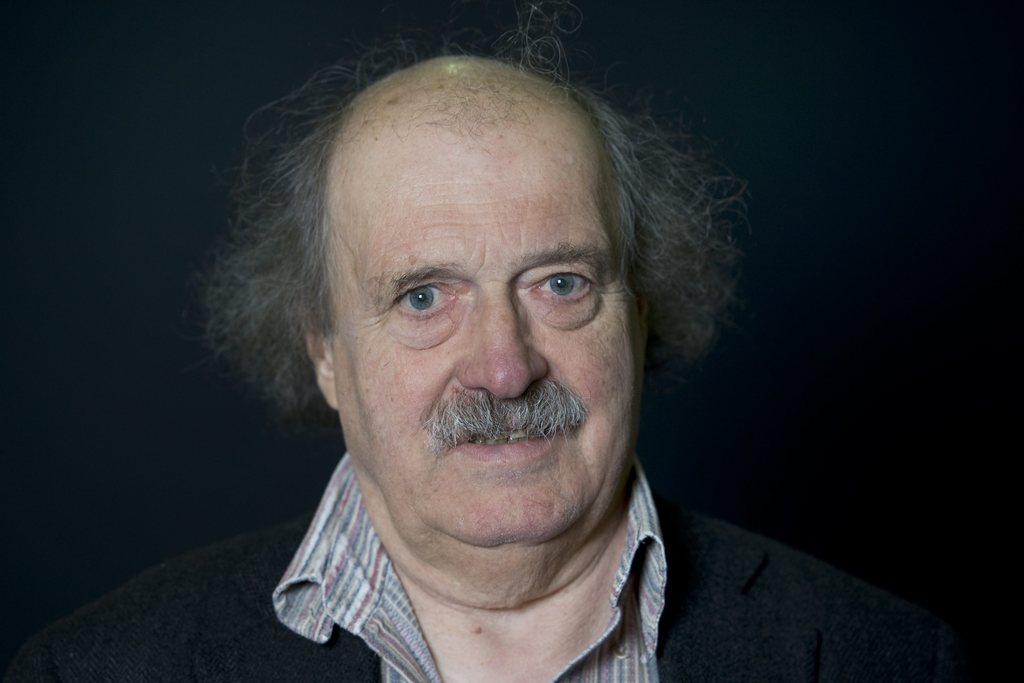‘Most versatile and successful’ Swiss author dies

Urs Widmer, one of the most famous contemporary authors in the German-speaking world, has died in Zurich after a long illness. He was 75.
Among his best known works are the play Top Dogs and the short novel Der blaue Siphon (The Blue Siphon Bottle).
Widmer is considered one of the most successful Swiss authors of the generation following Friedrich Dürrenmatt und Max Frisch.
He published about 80 novels, short stories, plays and essays.
Widmer’s literary career began in 1968 with the publication of Alois, although his commercial breakthrough didn’t come until 2000, with Der Geliebte der Mutter (The Mother’s Lover).
This, together with Das Buch des Vaters (The Father’s Book) in 2004 and Ein Leben als Zwerg (A Dwarf’s Life) two years later, formed a pseudo-autobiographical trilogy which intertwined personal events with 20th-century history.
Widmer was born in Basel into a literary family – his father, Walter, was a teacher, critic and translator and Nobel Prize-winning German author Heinrich Böll was a frequent visitor to the Widmer home.
He studied languages and history at the universities of Basel, Montpellier and Paris. He lived in Frankfurt from 1967 to 1984, working as a freelance writer, writing reviews for the Frankfurter Allgemeine Zeitung and teaching contemporary German literature at the university.
In 1984 he returned to Switzerland, living in Zurich with his wife, a psychoanalyst, and his daughter.
Wide range
Widmer’s output included novels, short stories, essays, plays, radio plays and translations of other authors, including Joseph Conrad’s Heart of Darkness.
Zurich publisher Diogenes, which published the vast majority of Widmer’s prose, described him as “the most versatile and successful Swiss author of the post-Dürrenmatt and Frisch generation”.
Interior Minister Alain Berset whose portfolio includes culture described Widmer as an author with “a keen instinct for human fates and a sense of humor”.
Critics praised his imaginative and ironic treatment of classic stories and adventures, as well as parodies and the surreal.
“No author in his right mind would write an autobiography, because it’s the last book,” he said at the launch of his autobiography, Reise an den Rand des Universums (Journey to the Edge of the Universe), last autumn.
It was indeed his last book, for which he was awarded the Swiss Literature Prize earlier this year.

In compliance with the JTI standards
More: SWI swissinfo.ch certified by the Journalism Trust Initiative
You can find an overview of ongoing debates with our journalists here . Please join us!
If you want to start a conversation about a topic raised in this article or want to report factual errors, email us at english@swissinfo.ch.